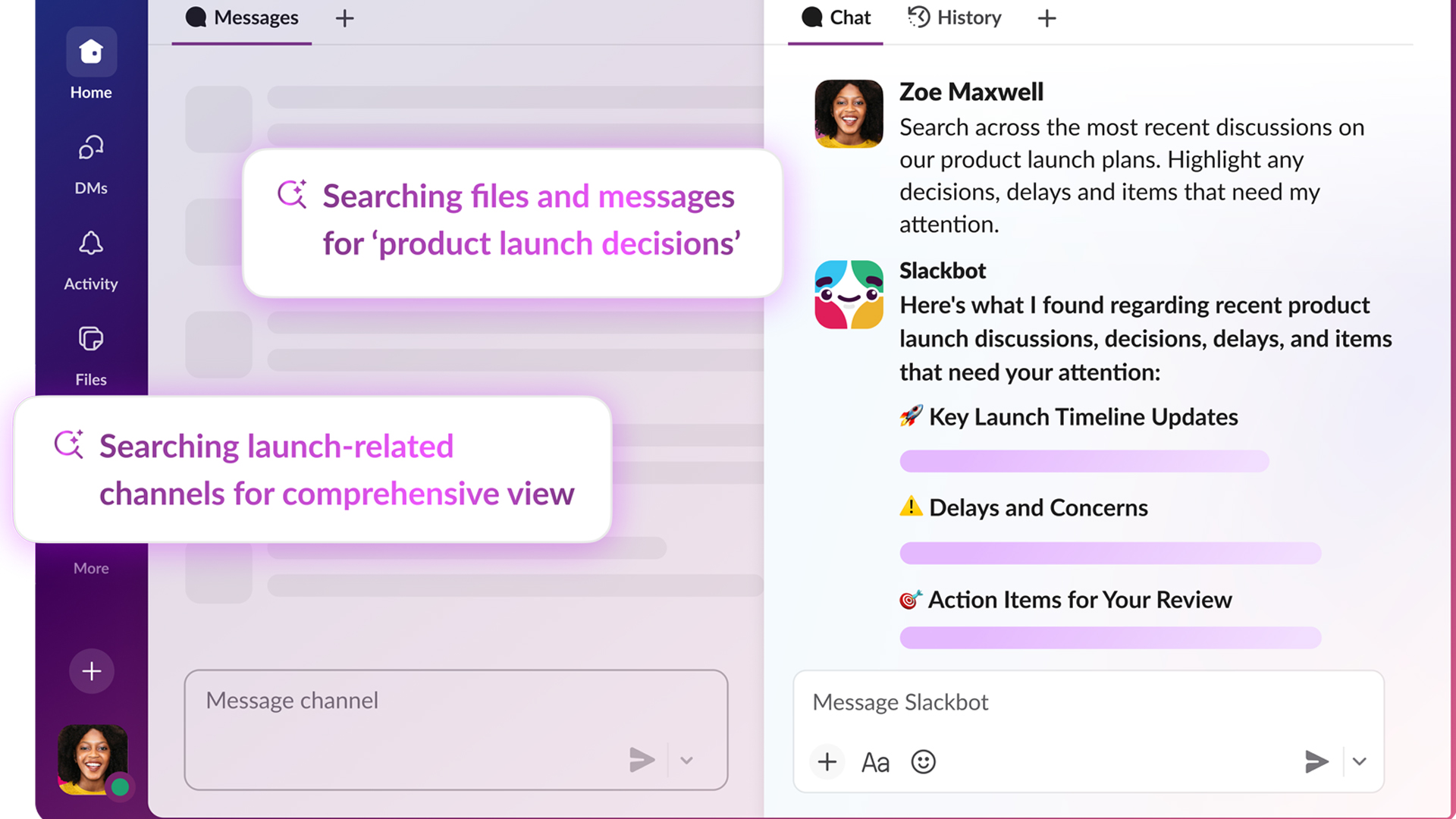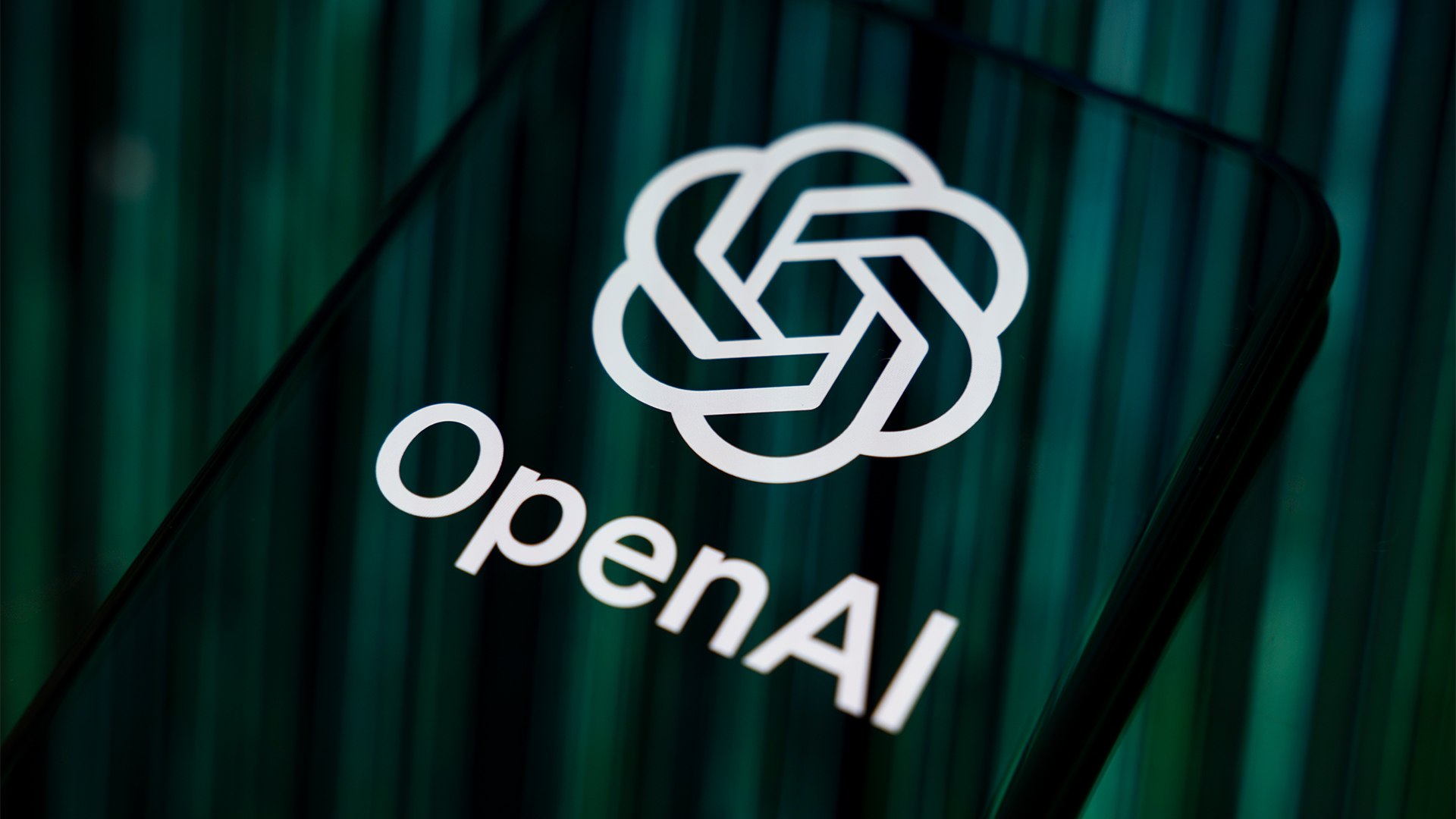'It's slop': OpenAI co-founder Andrej Karpathy pours cold water on agentic AI hype – so your jobs are safe, at least for now
AI agents aren’t coming for your job any time soon, according to the OpenAI co-founder


With concerns rising about the impact of agentic AI on the labor market, OpenAI co-founder Andrej Karpathy thinks agents are nowhere near ready to begin stealing jobs.
In a recent appearance on the Dwarkesh Podcast, Karpathy described the output of AI agents as “slop” and suggested the latest iteration of the technology isn’t quite living up to the hype.
“They’re cognitively lacking and it’s just not working,” he told host Dwarkesh Patel. “It will take about a decade to work through all of those issues.”
Karpathy added that, in their current form, AI agents “just don’t work” and aren’t quite the silver bullet for productivity and efficiency that major industry providers have framed them as.
“I feel like the industry is making too big of a jump and is trying to pretend like this is amazing, and it’s not. It’s slop”.
Big tech goes all-in on AI agents
While Karpathy’s comments appear to pour cold water on the potential of AI agents, leading industry stakeholders have been banging the drum for the technology repeatedly over the last year.
Microsoft, for example, said it expects 1.3 billion AI agents to be operational by 2028, while Salesforce has essentially pinned future success on the potential of its own agentic AI service, Agentforce.
Sign up today and you will receive a free copy of our Future Focus 2025 report - the leading guidance on AI, cybersecurity and other IT challenges as per 700+ senior executives
Launched last year, CEO Marc Benioff hailed the arrival of agents as the next big step in the evolutionary path of generative AI.
A key factor behind the appeal here is that agents can carry out tasks on behalf of human workers. They’re autonomous bots that can pick up the slack anywhere, and any time.
By contrast, AI assistants, which represented the first iteration of the tech during the early days of the generative AI ‘boom’, act as a supplementary tool for individual employees.
With this in mind, leaders across the industry have touted the potential for agents to streamline efficiency across a range of business functions, from customer support to software engineering and even in manual trades.
At the company’s annual Dreamforce conference earlier this month, Salesforce once again doubled down on agentic AI in a rallying call for customers to jump on the bandwagon.
But even while hailing the technology, adoption rates at the CRM giant show it’s struggling to achieve significant uptake.
Too much hype is causing serious issues
Karpathy isn’t the first in the industry to question the hype surrounding AI agents.
Indeed, Capgemini research shows IT leaders are still largely skeptical about the technology and are keeping their cards close to their chest on any investment in this domain.
Earlier this year, analysis from Gartner suggested that a concerning number of so-called agentic AI products were just repackaged software or RPA tools or basic chatbots.
“Agent washing,” as the consultancy described the trend, has become a serious issue as vendors look to capitalize on enterprise interest in the technology.
Longer term, the outlook isn’t exactly positive, according to Gartner, with 40% of agentic AI projects expected to be cancelled within the next two years.
This is largely due to poor returns on investment and the fact that most current use-cases are immature, which aligns closely with Karpathy’s comments regarding immediate benefits.
Previous research from Gartner on specific use-cases for agentic AI also show the technology has fallen flat, particularly in customer service and support roles.
Analysis from the consultancy in June noted that while workers in these positions were among the first on the AI chopping block, many are now backtracking on the trend.
Around half of companies that expected to “significantly reduce” customer service workforces due to AI agents are now projected to abandon plans by 2027.
Make sure to follow ITPro on Google News to keep tabs on all our latest news, analysis, and reviews.
MORE FROM ITPRO
- Agentic AI could be a blessing and a curse for cybersecurity
- The tech industry is becoming swamped with agentic AI solutions
- Agentic AI investment is putting the cart before the horse

Ross Kelly is ITPro's News & Analysis Editor, responsible for leading the brand's news output and in-depth reporting on the latest stories from across the business technology landscape. Ross was previously a Staff Writer, during which time he developed a keen interest in cyber security, business leadership, and emerging technologies.
He graduated from Edinburgh Napier University in 2016 with a BA (Hons) in Journalism, and joined ITPro in 2022 after four years working in technology conference research.
For news pitches, you can contact Ross at ross.kelly@futurenet.com, or on Twitter and LinkedIn.
-
 26% of privacy professionals are bracing for a breach this year
26% of privacy professionals are bracing for a breach this yearNews Overworked, underfunded privacy teams are being left hung out to dry by executives
-
 What role does automation play when it comes to IT service management?
What role does automation play when it comes to IT service management?Supported Content ITSM will be a familiar element of many IT departments, but a changing tech landscape requires a new strategy
-
 Workers are wasting half a day each week fixing AI ‘workslop’
Workers are wasting half a day each week fixing AI ‘workslop’News Better staff training and understanding of the technology is needed to cut down on AI workslop
-
 The AI-enabled Slackbot is now generally available – Salesforce says it could save more than a day’s work per week
The AI-enabled Slackbot is now generally available – Salesforce says it could save more than a day’s work per weekNews With an entirely overhauled model behind the chatbot, users can summarize channels and ask for highly personalized information
-
 Retailers are turning to AI to streamline supply chains and customer experience – and open source options are proving highly popular
Retailers are turning to AI to streamline supply chains and customer experience – and open source options are proving highly popularNews Companies are moving AI projects from pilot to production across the board, with a focus on open-source models and software, as well as agentic and physical AI
-
 Microsoft CEO Satya Nadella wants an end to the term ‘AI slop’ and says 2026 will be a ‘pivotal year’ for the technology – but enterprises still need to iron out key lingering issues
Microsoft CEO Satya Nadella wants an end to the term ‘AI slop’ and says 2026 will be a ‘pivotal year’ for the technology – but enterprises still need to iron out key lingering issuesNews Microsoft CEO Satya Nadella might want the term "AI slop" shelved in 2026, but businesses will still be dealing with increasing output problems and poor returns.
-
 OpenAI says prompt injection attacks are a serious threat for AI browsers – and it’s a problem that’s ‘unlikely to ever be fully solved'
OpenAI says prompt injection attacks are a serious threat for AI browsers – and it’s a problem that’s ‘unlikely to ever be fully solved'News OpenAI details efforts to protect ChatGPT Atlas against prompt injection attacks
-
 OpenAI says GPT-5.2-Codex is its ‘most advanced agentic coding model yet’ – here’s what developers and cyber teams can expect
OpenAI says GPT-5.2-Codex is its ‘most advanced agentic coding model yet’ – here’s what developers and cyber teams can expectNews GPT-5.2 Codex is available immediately for paid ChatGPT users and API access will be rolled out in “coming weeks”
-
 Google DeepMind CEO Demis Hassabis thinks startups are in the midst of an 'AI bubble'
Google DeepMind CEO Demis Hassabis thinks startups are in the midst of an 'AI bubble'News AI startups raising huge rounds fresh out the traps are a cause for concern, according to Hassabis
-
 OpenAI turns to red teamers to prevent malicious ChatGPT use as company warns future models could pose 'high' security risk
OpenAI turns to red teamers to prevent malicious ChatGPT use as company warns future models could pose 'high' security riskNews The ChatGPT maker wants to keep defenders ahead of attackers when it comes to AI security tools